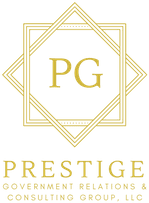CHECK OUT OUR SALT LAKE TRIBUNE OP ED
- By Mav Orlanda
- •
- 17 Nov, 2014
- •
Each major mental health profession subscribes to a code of ethics that strictly prohibits sexual contact between a therapist and client due to the imbalance of power and innate vulnerability associated with the fiduciary context of the therapeutic setting. While the majority of therapists are ethical, those who are not create a significant problem for both the credibility and integrity of the mental health professions.
Most importantly, the damage and hurt imposed on a vulnerable client when sexual contact occurs often ruins individual lives, breaks up families and disrupts communities. It is insidious and often kept secret. Clients report feeling embarrassed and confused, and they blame themselves. Worse yet, the issues which prompt individuals to seek assistance are often compounded, leading to an overwhelming sense of despair and even suicide. Many times, but not always, clients who report sexual contact with therapists are also victims of childhood sexual abuse, rape or other sexual trauma.
It shouldn’t happen, but it does. And it happens in Utah. To highlight the prevalence of sexual misconduct by mental health professionals, we need not look further than our own neighborhoods. Comparing registered sex offenders in Utah to therapist sexual misconduct offenders in Utah, a troublesome image is brought to reality. As of May 2014, the state lists 7,006 registered sex offenders out of 2,900,872 people, or 0.24 percent. In the therapist group, there were 77 offenders just in the past 18 months, out of 7,206 total workers = 1.07 percent. This is more than 4 times the rate of the population! This is a highly statistically significant increase and is evidence that the therapist group commits offenses at a higher rate than sex crimes in Utah’s general population.
So where does a person turn for help when the help hurts? The state relies on self-policing therapists, ethics codes and governmental boards which can only offer professional sanctions. With existing loopholes in Utah law, there are no real deterrents to significantly curtail this type of sexual exploitation and truly protect the public.
A set of national recommendations, in the form of model legislation, is currently being considered by lawmakers for the upcoming 2015 legislative session. The four pillars of the policy proposal are mandatory criminal background checks, with an emphasis on administrative findings containing sexual misconduct, information linkage to prevent state hopping for licenses, requiring mental health ethics boards to become mandatory reporters and providing guidance on a consumer awareness packet which educates clients on expectations for therapy.
Cultural shifts are sorely needed to stop victim-blaming and to make this behavior criminal. Therapists and governmental entities are not immune from this way of thinking. In fact, the bourgeoisie attitude among many practitioners and governmental decision-makers is one of mere toleration concerning the proletariat consumer-victim.
It takes considerable effort on the part of advocates to explain the nature of damage that comes from this type of exploitation. Additionally, when the Utah Criminal Code (76-5-406) entitled, "Sexual offenses against the victim without consent of victim — Circumstances," states that you must reasonably resist. It implies that victims must act in a specific way and that one is not a victim if they don’t resist enough.
While the intent may be to protect vulnerable people from being exploited, the paternalistic fashion and burden placed on the victim does not serve the purpose of the statute, nor does it furnish needed protections for vulnerable people.
Therapist-client sex may never go away completely, but efforts to secure protective laws and create a culture which does not tolerate exploitation of any kind are worthwhile.
Amy Coombs is a policy advocate, lobbyist and national responder for the Therapy Exploitation Link Line network (T.E.L.L.). She lives in Lehi.
